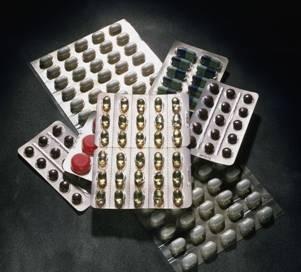Source: China Daily
03-16-2009 16:49
Think your doctor knows which drug — or surgery or even diagnostic test — works best? Think again. Half the time, there's little if any good evidence comparing one to another. And one of medicine's little secrets is that brand-new drugs don't have to work any better than cheap old ones to be approved for sale.
 |
Now the government has a $1.1 billion down payment to start unraveling that problem, money provided in the economic stimulus package to better determine which test or treatment works best, when and for whom so that patients don't waste time and money on poor choices.
But which ailments go to the top of a very long wish list? And perhaps most important, how to make sure the results get into doctors' and patients' hands but not overly limit what therapies people can choose?
"There's a lot of clamor ... that this is going to deprive people of the choice to basically have every treatment they want. That's based on a false premise," Dr. Harold Sox, past president of the American College of Physicians, told The Associated Press. Last week, Sox was chosen to lead a panel of the prestigious Institute of Medicine to help guide what comparisons the government makes.
"If people had a good explanation of why a test that they wanted was more likely to hurt them than to help them, they might of their free choice say, 'You know, I was clearly wrong. I shouldn't want that test and now I don't.'"
At issue is what's called "comparative effectiveness." Should you have open-heart bypass surgery or far less invasive stents to open severely clogged heart arteries? Which of two hot treatments best prevents stroke from a clogged neck artery, surgically rooting out the clog or pushing it aside with a stent?
Does arthroscopic surgery work any better than painkillers for knee arthritis? Of all the competing pills, which is best to start with in treating Type 2 diabetes or high blood pressure? Is there really any difference between Prevacid and Prilosec for heartburn, or between Fosamax and hormone treatments for bone-weakening osteoporosis?
Editor:Qin Yongjing
